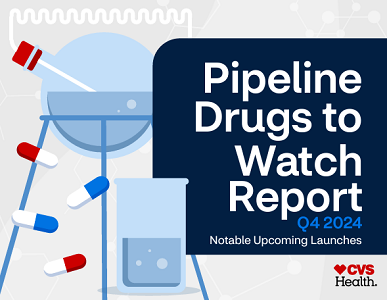Expanding RSV prevention to broader populations


The active drug pipeline for Q4 2024 includes several vaccines for respiratory syncytial virus (RSV) whose manufacturers are seeking expanded indications for additional age groups. Although infants and older adults are more likely to develop severe RSV and require hospitalization, people of all ages can contract RSV. According to the US Centers for Disease Control and Prevention (CDC), RSV is a seasonal illness that is most likely to spread during the fall and winter, although infections began to increase as early as July in recent years.1
Adults at highest risk for severe RSV infection include those who have:
- Chronic heart or lung disease
- Weakened immune systems
- Other underlying medical conditions such as severe obesity and severe diabetes
Two drug manufacturers are seeking approval of supplemental indications for additional age groups for those who are at increased or high risk: Pfizer, maker of Abrysvo (respiratory syncytial virus vaccine) (ages 18-59 years) and GlaxoSmithKline, maker of Arexvy (respiratory syncytial virus vaccine, recombinant, adjuvanted) (ages 18-49 years).
The pipeline also contains two other drugs for the prevention of lower respiratory infection due to RSV in pediatric populations. Sanofi has developed a new intranasal vaccine which, if approved, would be the first non-injection vaccine. Merck is working on a new biologic for infants, clesrovimab, which is not a vaccine but rather a preventive antibody. If approved, clesrovimab would compete with Beyfortus (nirsevimab-alip) and Synagis (palivizumab).2
Discover additional insights
This document contains references to brand-name prescription drugs that are trademarks or registered trademarks of pharmaceutical manufacturers not affiliated with CVS Health.
©2024 CVS Health. All rights reserved. 3807600 091924

